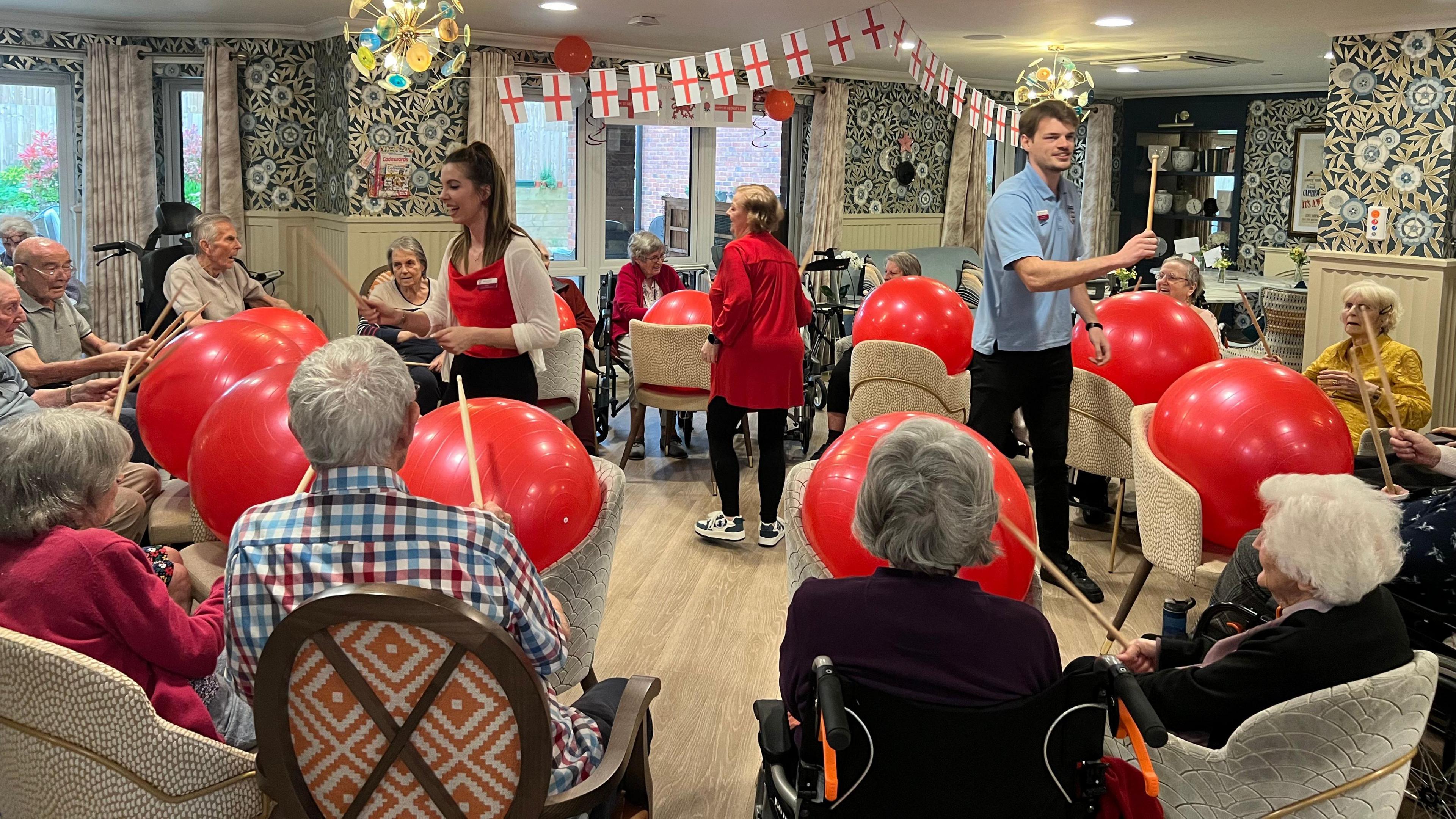New tool to predict pensioner falls developed

eFalls can predict how likely an elderly person is to fall over the next 12 months
- Published
A new tool which predicts older patients' risk of falling could help protect vulnerable people, those behind the innovation have said.
Researchers say it could help assess the risk of an individual patient falling over a 12-month period.
The prediction model, called eFalls, has been developed by teams from University of Leeds and University of Birmingham using data from more than 750,000 healthcare records.
Professor Andrew Clegg has described the tool as "invaluable" to the elderly and their families.
Mr Clegg, who is professor of geriatric medicine at the University of Leeds' School of Medicine, said: "Currently, people’s fall risk is usually only assessed when they have already experienced a fall, which means that they might have already experienced a major injury, such as a hip fracture.
"Our eFalls calculator means that, for the first time, it is possible to proactively identify a person’s risk of future falls, which means that they can be referred to specialist falls prevention services, reducing the risk of a fall from happening.
"The ability to put plans in place to protect those at risk is invaluable to the patient and their loved ones."
Growing problem
With an ageing population, falls present a growing problem for healthcare systems around the world.
The impact of falls on individuals can be devastating. Around half are estimated to result in major lacerations, fractures or brain injuries and they frequently rob elderly people of their independence.
Lucinda Archer, assistant professor in biostatistics at the University of Birmingham, says the accuracy of the tool had been "thoroughly tested".
She added: "If this accuracy is consistent across the wider population, the use of eFalls to target those who would benefit from specialist assessment could vastly improve the way that falls prevention services are provided in the UK.”
The researchers said they hoped the prediction model would be integrated into the health service and that they were keen to work with policymakers on the innovation.
- Published29 April 2024

- Published19 April 2024

- Published31 March 2024
